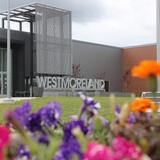- Triangle Tech schools are located throughout Western Pennsylvania in five easily accessible communities (Pittsburgh, Erie, Greensburg, DuBois, Sunbury and Bethlehem). Each school is staffed with experienced, full-time professional instructors and is equipped with the latest in educational technology. Every program we offer provides you the opportunity to get extensive hands-on experience as well as classroom instruction.
School Highlights
Triangle Tech Inc-Greensburg serves 160 students (100% of students are full-time).
The college's student:teacher ratio of 7:1 is lower than the state community college average of 15:1.
Minority enrollment is 40% of the student body (majority Black), which is less than the state average of 48%.
Quick Stats (2025)
- Enrollment: 160 students
- Private-state tuition: $16,500
- Acceptance Rate: 100%
- Student:teacher ratio: 7:1
- Minority enrollment: 40%
- Source: Integrated Postsecondary Education Data System (IPEDS)
School Overview
The teacher population of 24 teachers has stayed relatively flat over five years.
Triangle Tech Inc-Greensburg
(PA) Community College Avg.
Carnegie Classification
Associate's Colleges: High Career & Technical-High Traditional
Baccalaureate/Associate's Colleges: Mixed Baccalaureate/Associate's
Institution Level
At least 2 but less than 4 years
At least 2 but less than 4 years
Institution Control
Private for-profit
Private not-for-profit
Total Faculty
24 staff
58 staff
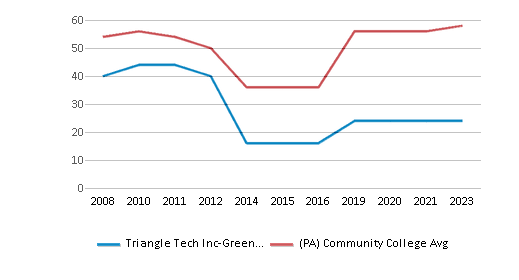
Student Body
The student population of Triangle Tech Inc-Greensburg has grown by 15% over five years.
The student:teacher ratio of 7:1 has increased from 5:1 over five years.
The Triangle Tech Inc-Greensburg diversity score of 0.52 is less than the state average of 0.68. The school's diversity has grown by 241% over five years.
Total Enrollment
160 students
361 students
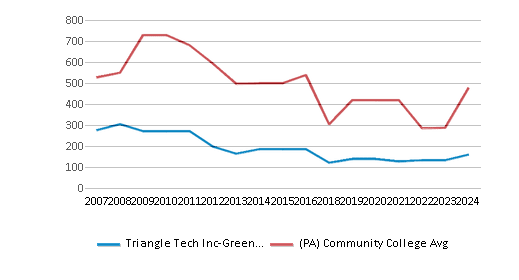
Student : Teacher Ratio
7:1
15:1
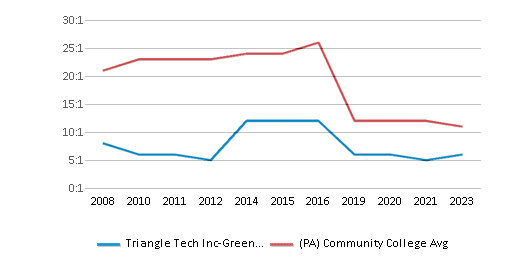
# Full-Time Students
160 students
310 students
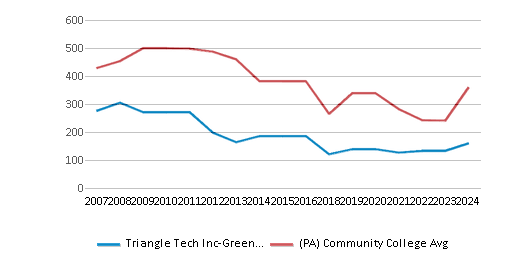
# Part-Time Students
n/a
134 students
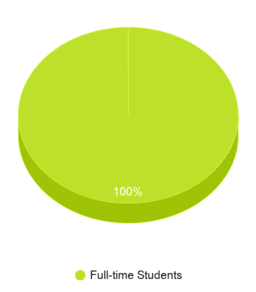
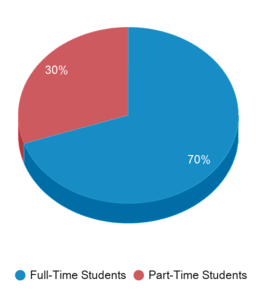
# Enrollment Undergraduate
160 students
300 students
# Full-Time Undergraduate Students
160 students
300 students
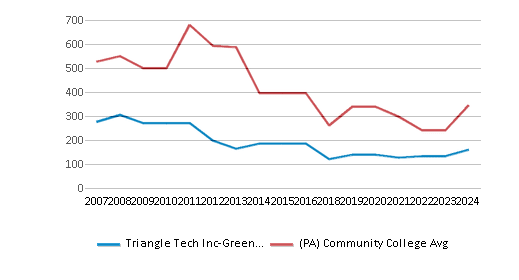
# Full-Time Graduate Students
n/a
10 students
# Part-Time Undergraduate Students
n/a
134 students
# Part-Time Graduate Students
n/a
12 students
Total Dormitory Capacity
n/a
330 students
% American Indian/Alaskan
n/a
n/a
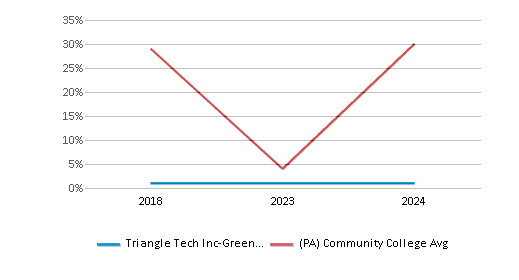
% Asian
n/a
5%
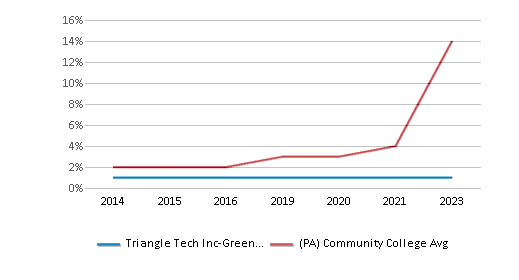
% Hispanic
1%
11%
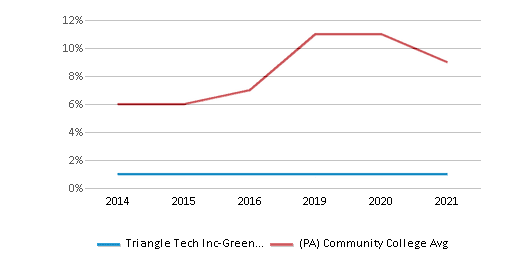
% Black
2%
15%
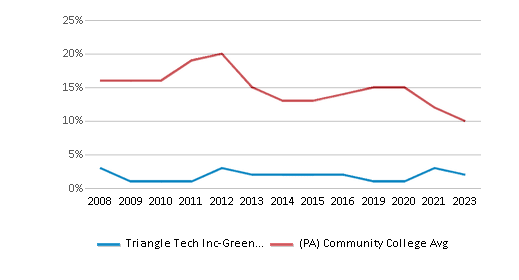
% White
60%
52%
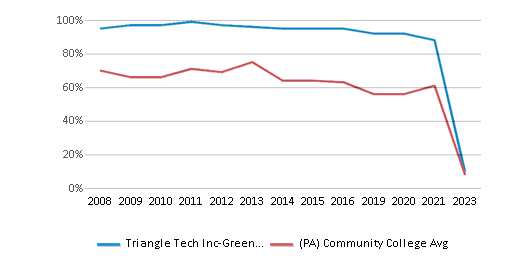
% Hawaiian
34%
3%
% Two or more races
1%
3%
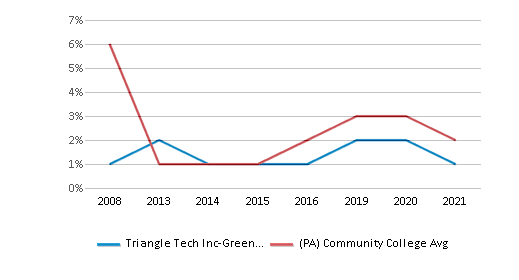
% Non Resident races
n/a
1%
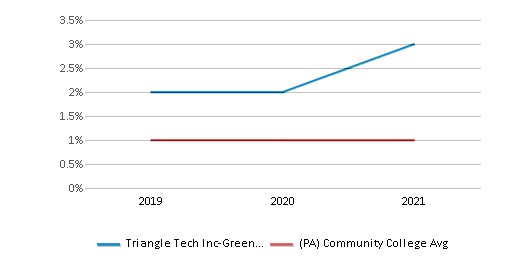
% Unknown races
n/a
10%
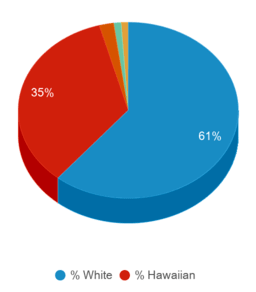
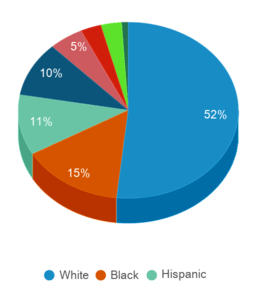
Diversity Score
0.52
0.68
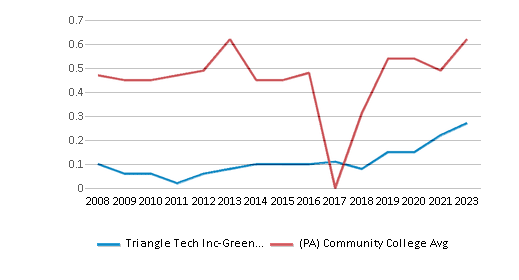
College Completion Rate (Students who graduate in less than 4 years)
0.7826%
0.6111%
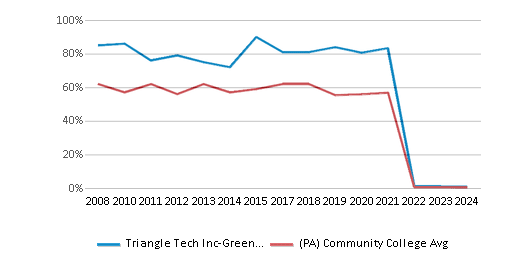
College Completion Rate (Students who graduate in 4 years or more than 4 years)
n/a
0.3822%
Average Graduate Earnings (10 Years)
$43,300
$34,900
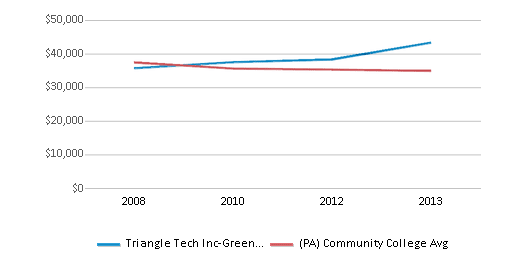
Tuition and Acceptance Rate
The private state tuition of $16,500 is less than the state average of $17,177. The private state tuition has declined by 7% over four years.
Private State Tuition Fees
$16,500
$17,177
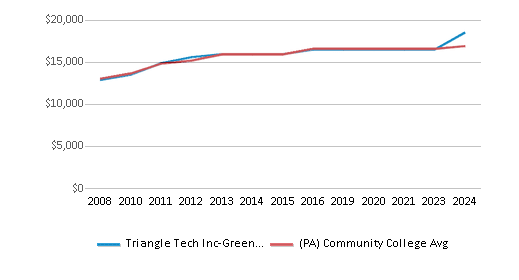
% Students Receiving Some Financial Aid
91%
91%
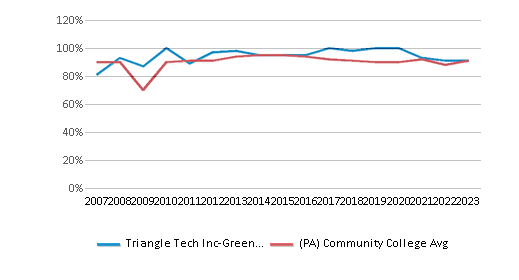
Median Debt for Graduates
$12,668
$13,620
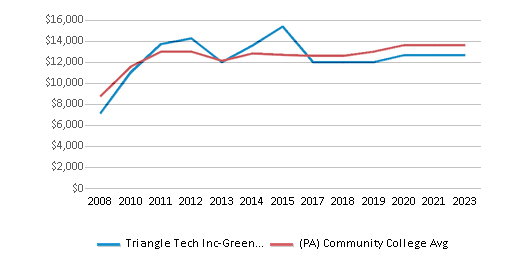
Median Debt for Dropouts
$5,500
$6,234
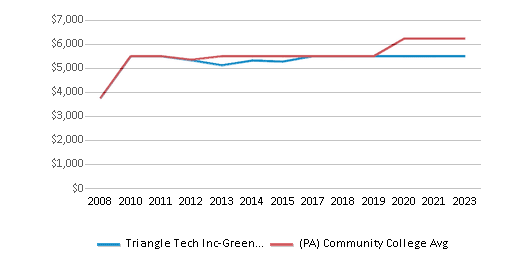
Acceptance Rate
100%
84%
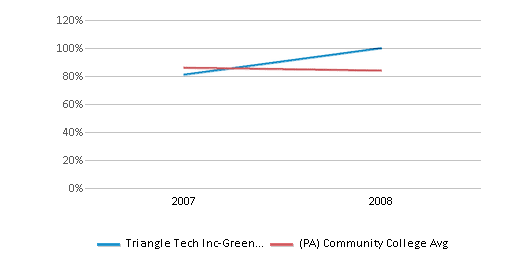
SAT Reading
n/a
460
SAT Math
n/a
470
SAT Writing
n/a
435
ACT Composite
n/a
20
ACT English
n/a
20
ACT Math
n/a
21
ACT Writing
n/a
7
Source: 2024 (or latest year available) Integrated Postsecondary Education Data System (IPEDS)
School Notes
- Our Greensburg school is located in downtown Greensburg. The school's administrative offices, CADD department and Maintenance Electricity department are housed in this facility, which occupies a total of approximately 18,500 square feet of comfortable, air-conditioned classrooms, laboratories and shops. The RHVAC department is located at 600 Blank School Road, approximately 2 miles north of downtown. This facility occupies approximately 16,300 square feet. Parking is available in the student parking lot. Classrooms accommodate from 15 to 30 students, labs and shops are generally limited to a maximum of 20 students. Triangle Tech AST Degree programs Offered in Greensburg are Architectural Computer-Aided Drafting & Design Technology, Mechanical Computer-Aided Drafting & Design Technology, Maintenance Electricity & Construction Technology, Refrigeration, Heating, Ventilation & Air Conditioning Technology and Carpentry and Construction Technology. Triangle Tech Diploma programs Offered in Greensburg includes Refrigeration, Heating, Ventilation & Air Conditioning Mechanic and Residential and Light Commercial Electricity. Triangle Tech is accredited by the Accrediting commission of Career Schools and Colleges of Technology and is licensed by the Pennsylvania State Board of Private Licensed Schools, Pennsylvania Department of Education.
Frequently Asked Questions
How much does Triangle Tech Inc-Greensburg cost?
Triangle Tech Inc-Greensburg's private state tuition is approximately $16,500.
What is the acceptance rate of Triangle Tech Inc-Greensburg?
The acceptance rate of Triangle Tech Inc-Greensburg is 100%, which is higher than the state average of 84%.
Recent Articles

Obtaining Your Bachelor's Degree at a Community College
Explore the evolving landscape of community colleges offering bachelor's degrees, addressing affordability, accessibility, and workforce needs.

A to Z of Community College Certificates and Courses
From business and healthcare to technology and skilled trades, the article showcases the breadth of options available to students seeking to enhance their knowledge, develop new skills, or pursue career advancement.

What is a Community College?
This comprehensive guide explains what a community college is, its history, and its role in higher education. It covers the types of programs offered, differences from four-year colleges, benefits of attending, and important considerations for prospective students, providing valuable insights for those exploring educational options.

